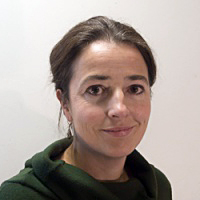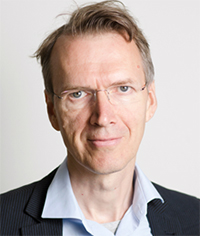The Global Spread of Safe Country Policies: Political Science and Legal Perspective
A recording of this event can be viewed here.
Public Online Panel
In the absence of international rules on responsibility sharing regarding the hosting of refugees, countries have increasingly adopted 'Safe Country Policies' as a unilateral tool to restrict access to asylum by designating the responsibility of another state. Despite the salience of such policies for both host states and people seeking protection, we lack a coherent conceptualization of the different types of Safe Country Policies and systematic information on their adoption in all world regions. In this webinar Frowin Rausis will introduce the Safe Country Policies Dataset (SACOP), which provides original information on the adoption and characteristics of Safe Country Policies in 195 states from 1951 until 2021. Drawing from this dataset, we learn that Safe Country Policies are not only widespread in the Global North but are increasingly being adopted by states in the Global South. Daniel Ghezelbash and Gregor Noll will reflect on the spread of these policies from a legal perspective and examine their relationship to international norms and institutions, including the Global Compact on Refugees. In sum, the webinar discusses how far the global spread of these policies not only opposes the principle of responsibility-sharing in asylum governance but may equally create new patterns of injustice between states in regions that host most displaced people.
Moderator:

Sandra Lavenex: Professor of European and International Politics at the University of Geneva
Speakers:

Frowin Rausis is a PhD student and affiliated to the Department of Political Science at the University of Lucerne as well as a research fellow of the research network on migration and mobility studies nccr – on the move. In his PhD project “The Invention of Safe Countries” he studies the spread of safe country policies by which states restrict access to protection or shift responsibility for asylum seekers to other countries. In case studies, he focuses on diffusion mechanisms that led to the adoption of such policies in Denmark, Switzerland, and South Africa. Currently, he is a visiting scholar of the Centre for Advanced Migration Studies (AMIS) at the University of Copenhagen.

Daniel Ghezelbash is an Associate Professor and ARC DECRA Fellow at Macquarie Law School. His research focuses on Australian, comparative and international refugee law, and how technology can be used to promote accountability and access to justice. His ARC DECRA project examines fast-track and accelerated asylum procedures, and whether they can be designed in a way that is both fair and efficient. His book, Refuge Lost: Asylum Law in an Interdependent World (CUP, 2018) explores the diffusion of restrictive asylum seeker policies around the world. He is a practicing refugee lawyer and Special Counsel at the National Justice Project, and the Vice-President of Refugee Advice and Casework Services.

Gregor Noll is chair in international law at the School of Business, Economics and Law at Gothenburg University after holding the chair of international law at Lund University between 2005 and 2018. His research is mainly in the areas of migration law, the law of armed conflict, the theory of international law, and the effects of AI on law. Noll held the prestigious Pufendorf Chair at Lund University from 2012 to 2016 and co-launched the Gothenburg / Lund/ Uppsala Migration Law Research Network in 2011. With a group of junior and mid-career research fellows, he transformed Lund into a brand for interdisciplinary research in international law. He has regularly published on the asylum and migration laws and policies of the European Union, and is currently researching the interaction between demography, democracy and migration law.
Event Details:
Date: Wednesday 23 March
Time: 9:15am(CET) / 8:15am(GMT) / 7:15pm (AEST)